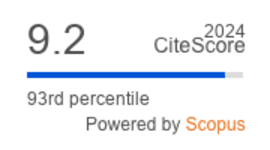BuShenFang Suppresses Tumor Growth and Induces Apoptosis in Colorectal Cancer Xenografts
DOI:
https://doi.org/10.36877/pmmb.a0000472Abstract
Abstract: Colorectal cancer (CRC) remains a major global health burden, necessitating alternative therapeutic approaches. Traditional Chinese Medicine (TCM), including BuShenFang (BSF), has demonstrated potential anti-CRC effects, yet its precise mechanisms remain unclear. While BSF has previously exhibited anti-CRC activity in vitro, it’s in vivo efficacy and associated molecular mechanisms requires further elucidation. In this study, a subcutaneous xenograft model was established in nude mice, which lack T-cell-mediated immunity and can effectively support the growth of human colorectal cancer cells (HCT116). This model enables a more clinically relevant evaluation of BSF’s antitumor effects in vivo. The study aimed to assess the tumor inhibitory effect of BSF and investigate its underlying mechanisms via the Wnt/β-catenin signaling pathway. Mice were allocated into control, low-dose BSF (L-BSF), high-dose BSF (H-BSF), and xStAxVHLL (positive control) groups. Tumor growth was monitored, and analyses including histology, immunohistochemistry, TUNEL assay, immunofluorescence, and Western blotting were performed to examine tumor proliferation, apoptosis, and Wnt pathway regulation. BSF significantly inhibited tumor growth in a dose-dependent manner, reduced KI67 expression, promoted apoptosis, and increased adenomatous polyposis coli (APC) levels. Additionally, BSF downregulated β-catenin, p-GSK-3β/GSK-3β, and Axin1, while suppressing Wnt target genes (Cyclin D1, c-Myc, COX-2). The decrease in p-GSK-3β (Ser9) suggests increased GSK-3β activity, which promotes β-catenin degradation and attenuates Wnt/β-catenin signaling. These indicate that BSF inhibits CRC progression through modulation of the Wnt/β-catenin signaling pathway, promoting apoptosis and suppressing tumor proliferation. This highlights its potential as an adjunct therapy in CRC treatment. In conclusion, these findings suggest that BSF may exert anti-CRC effects by targeting key tumorigenic pathways in preclinical study. Further research, including clinical trials, is needed to confirm its therapeutic potential.
Downloads
Published
How to Cite
Issue
Section
License
Copyright (c) 2025 Khang Wen Goh, Jie Ji, Xian Gu, Lokesh Bontha Venkata Subrahmanya, Hemant Kumar Singh Yadav, Phei Er Kee, Siew-Keah Lee, Ashok Kumar Janakiraman, Long Chiau Ming, Kai Bin Liew

This work is licensed under a Creative Commons Attribution-NonCommercial 4.0 International License.
Author(s) shall retain the copyright of their work and grant the Journal/Publisher right for the first publication with the work simultaneously licensed under:
Creative Commons Attribution-NonCommercial 4.0 International (CC BY-NC 4.0). This license allows for the copying, distribution and transmission of the work, provided the correct attribution of the original creator is stated. Adaptation and remixing are also permitted.

This broad license intends to facilitate free access to, as well as the unrestricted reuse of, original works of all types for non-commercial purposes.
The author(s) permits HH Publisher to publish this article that has not been submitted elsewhere.



.png)

.jpg)
